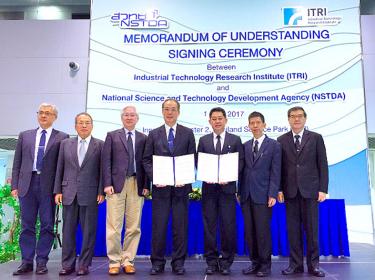The government has gained headway in forging ties with South and Southeast Asia, as well as Australia and New Zealand, a year after unveiling its “new southbound policy” aimed at expanding the nation’s export markets and diversifying its products.
The pursuit of better regional connectivity aims to lay a healthy and lasting foundation between Taiwan and the 18 target nations, despite political reshuffles, Minister Without Portfolio John Deng (鄧振中) told the Taipei Times, as a change in administration often means a shake-up in policy direction, and backroom wrangling often dictates the terms of cooperation.
MULTI-FACETED
Taiwan’s dialogues with governments in the target nations have grown broader, more frequent and at higher levels, and the government is in talks to sign and update investment protection agreements to safeguard the interests of Taiwanese companies.
The endeavor requires delicacy and tenacity due to the nation’s lack of formal diplomatic ties with any of the target countries, as all stand by the “one China” policy.
Regardless, Taiwan has forged better connectivity in the region as evidenced by the fast-growing exports, which amounted to US$26.473 billion in the first five months of this year, a 13.5 percent increase from the same period last year and outpacing the overall growth of 12.5 percent, according to Ministry of Finance data.
ASEAN, which accounted for 18 percent of outbound shipments last month, has grown into the second-largest export destination after China, the ministry said.
Apart from government agencies, Taiwan’s state-run enterprises, financial institutions, trade groups, research bodies and local governments have all lent force to the enhancement of regional connectivity.
Today, 25,000 Taiwanese firms have a presence in ASEAN markets and nearly 90 are in India, said James Huang (黃志芳), chairman of the Taiwan External Trade Development Council (TAITRA, 外貿協會), the nation’s main trade promotion body.
The figures suggest ample room for improvement and exploration given the region’s rapidly expanding population and economy, he said.
State-run Taiwan Sugar Corp (台糖), Taiwan Fertilizer Co (台肥), Taiyen Biotech Co (台鹽), petroleum refiner CPC Corp, Taiwan (台灣中油), shipbuilder CSBC Corp, Taiwan (台灣國際造船) and China Steel Corp (中鋼) have taken the lead and invested in 31 projects in ASEAN, the Ministry of Foreign Affairs’ Web site shows.
TAITRA inked a memorandum of understanding with the Federation of Information Technology Industry Sri Lanka in Taipei last week to boost economic exchanges and explore investment opportunities between the two sides.
The information and communication technology (ICT) industry is expected to drive 40 percent of Sri Lanka’s GDP in the next five years and lift the competitiveness of its education, manufacturing, medical and transportation sectors, TAITRA president and chief executive officer Walter Yeh (葉明水) said on Thursday last week.
ICT is Taiwan’s industrial strength, accounting for 30 percent of all exports.
Federation chairman Kithsiri Manchanayakke expressed hope that the memorandum could serve as a cornerstone for more economic and cultural exchanges.
Similarly, Taiwan’s state-backed Industrial Technology Research Institute signed a memorandum of understanding with Thailand’s National Science and Technology Development Agency last week to promote innovative application cooperation between the two nations.




